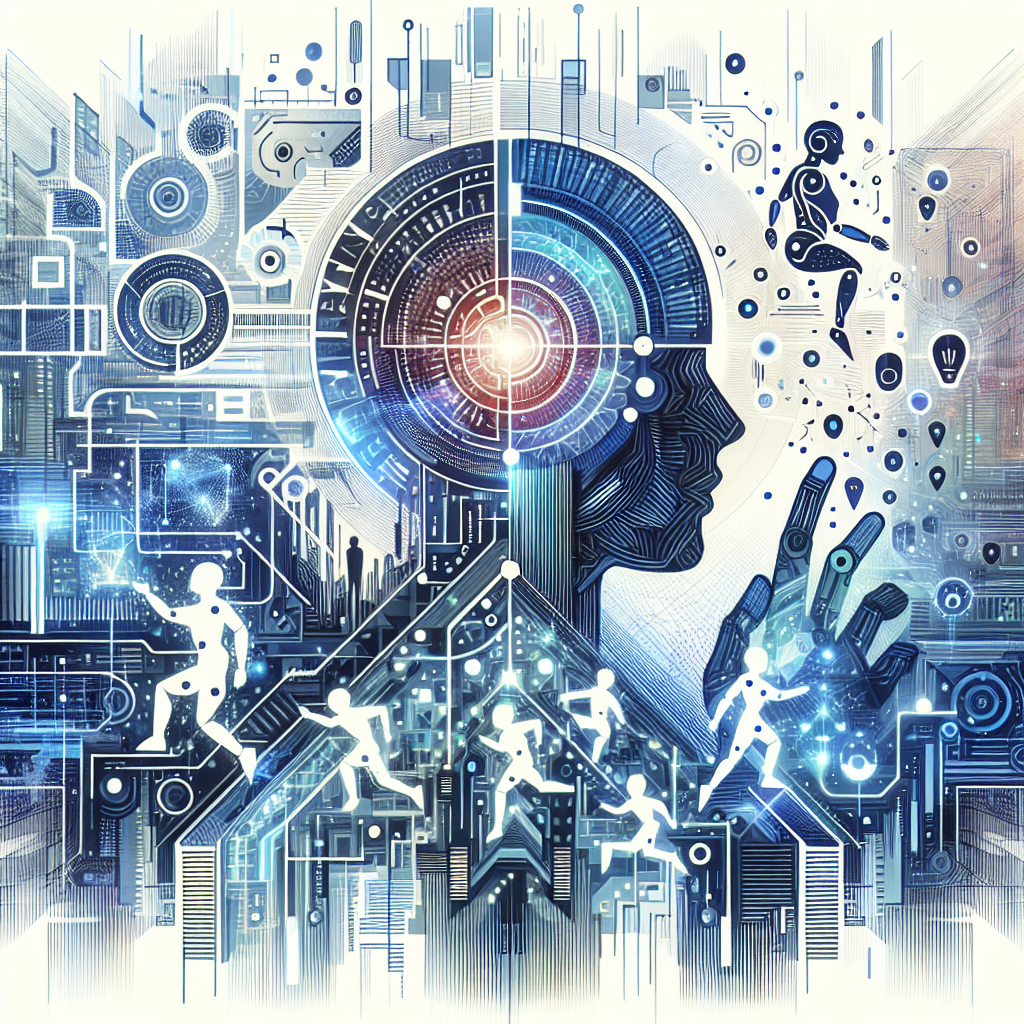The Future of AI Software Development
Artificial Intelligence (AI) has become an essential part of our daily lives, from virtual assistants like Siri and Alexa to self-driving cars and personalized recommendations on streaming services. As AI technology continues to advance, the future of AI software development holds great promise for innovation and transformation across various industries.
AI software development involves creating algorithms and programs that can perform tasks that typically require human intelligence, such as learning, reasoning, problem-solving, perception, and language understanding. With advancements in machine learning, deep learning, natural language processing, and computer vision, AI software developers are able to create sophisticated and intelligent systems that can automate processes, make predictions, and provide insights from vast amounts of data.
The future of AI software development is exciting and full of potential. Here are some key trends and developments that are shaping the future of AI software development:
1. Ethical AI: With the increasing adoption of AI technology in various applications, there is a growing concern about ethical issues such as bias, transparency, accountability, and privacy. In the future, AI software developers will need to prioritize ethical considerations in the design and development of AI systems to ensure that they are fair, transparent, and trustworthy.
2. Explainable AI: As AI systems become more complex and sophisticated, it is essential to understand how they make decisions and why they behave in a certain way. Explainable AI is a growing field that focuses on developing AI systems that can provide explanations for their decisions and actions, enabling users to trust and understand the AI system’s reasoning process.
3. AI-powered automation: AI software development is increasingly focused on automating repetitive and time-consuming tasks to improve efficiency and productivity. In the future, AI-powered automation will continue to revolutionize industries such as manufacturing, healthcare, finance, and transportation by streamlining processes, reducing costs, and increasing accuracy.
4. AI-driven innovation: AI technology is driving innovation across various industries by enabling new applications and services that were previously not possible. In the future, AI software developers will continue to push the boundaries of AI technology to develop innovative solutions that can address complex challenges and opportunities in areas such as healthcare, agriculture, education, and sustainability.
5. Collaborative AI: AI software development is becoming more collaborative, with AI systems working together with humans to achieve common goals. In the future, AI software developers will focus on creating AI systems that can collaborate with humans in real-time, enabling seamless interaction and cooperation between humans and machines.
6. Edge AI: Edge computing is a growing trend in AI software development, enabling AI algorithms to run on edge devices such as smartphones, IoT devices, and sensors. In the future, edge AI will continue to gain traction as it offers low latency, privacy, and security benefits for AI applications that require real-time processing and decision-making.
7. AI democratization: As AI technology becomes more accessible and affordable, AI software development is becoming democratized, allowing a broader range of developers, businesses, and organizations to leverage AI capabilities. In the future, AI democratization will enable more people to create AI-powered solutions and drive innovation across various industries.
FAQs:
Q: What are the key skills required for AI software development?
A: Key skills required for AI software development include programming languages such as Python, R, Java, and C++, knowledge of machine learning algorithms and techniques, data analysis and visualization skills, and understanding of AI frameworks and libraries.
Q: How can I get started with AI software development?
A: To get started with AI software development, you can enroll in online courses and tutorials on AI, machine learning, and deep learning, participate in hackathons and coding challenges, join AI communities and forums, and work on AI projects to gain hands-on experience.
Q: What are the ethical considerations in AI software development?
A: Ethical considerations in AI software development include ensuring fairness and transparency in AI algorithms, protecting privacy and security of user data, avoiding bias and discrimination in AI systems, and adhering to ethical guidelines and regulations in AI development.
Q: How can I stay updated on the latest trends in AI software development?
A: To stay updated on the latest trends in AI software development, you can follow AI conferences and events, read research papers and publications on AI, join AI communities and forums, follow AI experts and influencers on social media, and enroll in online courses and workshops on AI.
In conclusion, the future of AI software development is bright and full of opportunities for innovation and transformation across various industries. With advancements in AI technology, ethical considerations, explainable AI, AI-powered automation, collaborative AI, edge AI, and AI democratization, AI software developers are well-positioned to create intelligent systems that can drive positive change and make a significant impact on society.

